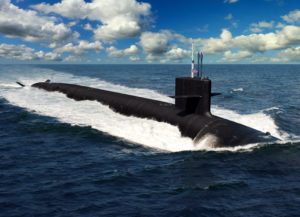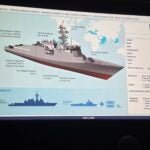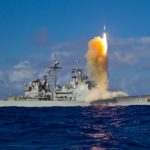
The Navy’s top acquisition official said while the Columbia-class ballistic missile submarines (SSBNs) are the most impacted by a continuing resolution (CR), if the period before a full budget increases, the service will ask for additional waivers. The House Democrats proposed CR would keep the government open through Dec. 11 and includes an anomaly, or exemption, for the Navy to procure the first two Columbia-class SSBNs. That anomaly would give the Navy another $1.6 billion for the procurement (Defense Daily,…

 By
By 










